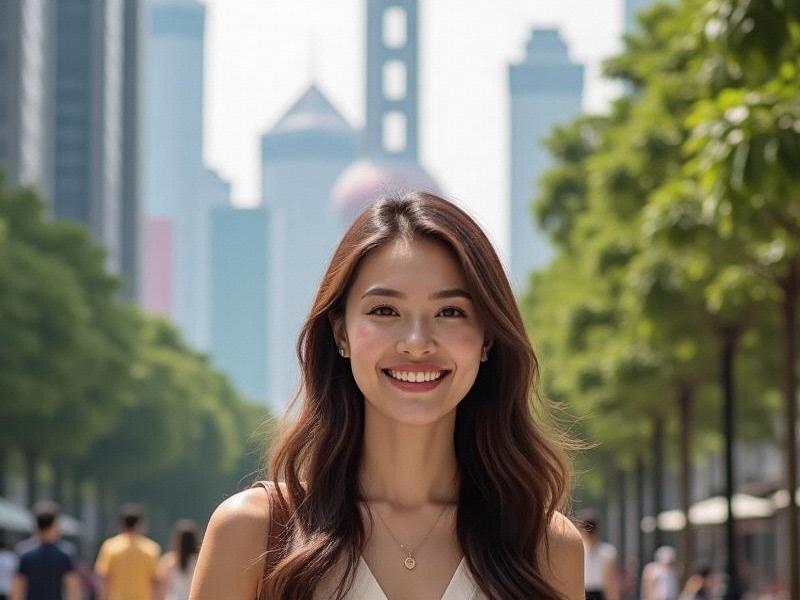
The streets of Shanghai tell a story of feminine revolution. Along the tree-lined avenues of the Former French Concession, young professionals in tailored qipao-inspired dresses stride confidently to tech startups. In Lujiazui's gleaming towers, female executives command boardrooms where their mothers might have served tea. At Xintiandi's trendy cafes, circles of women debate venture capital strategies between sips of matcha lattes. Shanghai's women are rewriting the rules of Chinese femininity - and in the process, reshaping one of the world's great cities.
Economic empowerment forms the foundation of this transformation. Shanghai now boasts China's highest percentage of female executives at 38.6% in Fortune 500 companies headquartered in the city - nearly double the national average. Women-led startups account for 32% of Shanghai's tech incubator projects, with female founders raising an average of ¥87 million in Series A funding, just 8% less than their male counterparts. "The glass ceiling here is more porous," observes venture capitalist Vivian Wu. "Shanghai women don't wait for permission to lead."
The educational advantage is striking. Women comprise 54% of graduate students at Shanghai's top universities, dominating enrollment in traditionally male-dominated fields like finance (61%) and computer science (49%). This academic edge translates to professional success - female professionals in their 30s now outearn male peers by an average of 12% in knowledge industries, a reversal of the national trend.
夜上海419论坛 Fashion has become a powerful medium of self-expression. Shanghai's women have pioneered "New Oriental" style - blending cheongsam elements with contemporary silhouettes. Local designers like Helen Lee and Uma Wang have gained international acclaim for collections that reinterpret Chinese aesthetics through a modern feminist lens. The annual Shanghai Fashion Week now rivals Paris and Milan as a trendsetter, with 68% of featured designers being women - the highest percentage among major fashion capitals.
Cultural influence extends beyond clothing. Female writers account for 7 of Shanghai's 10 best-selling authors, exploring themes of urban womanhood that resonate across China. In film, Shanghai-born directors like Vivian Qu are bringing female perspectives to mainstream cinema, while dance troupes like the all-female Shanghai Moon Collective are reinventing traditional Chinese dance with contemporary feminist themes.
上海龙凤419会所 The relationship dynamics reveal fascinating shifts. Shanghai's marriage rate has dropped 28% in the past decade as women delay or forgo marriage - the average first marriage age for educated women is now 31.2, nearly four years later than the national average. Dating apps report Shanghai women are 37% more likely to initiate contact and 52% more likely to propose splitting the bill on first dates compared to other Chinese cities.
Parenting philosophies reflect this independence. A growing movement of "Free-Range Shanghai Mothers" rejects the hyper-intensive parenting common elsewhere in China, instead emphasizing self-reliance. "We teach our daughters to climb trees and negotiate salaries with equal confidence," explains media executive and mother of two, Lisa Zhang.
上海品茶网 Challenges persist beneath the progress. The "Double Burden" phenomenon sees professional women still handling 78% of household chores. Appearance pressures remain intense - Shanghai leads China in cosmetic procedures per capita, with 1 in 3 women aged 25-40 having undergone some form of aesthetic treatment. And the city's declining birthrate (just 0.78 per woman) highlights the difficult choices between career and family.
Yet Shanghai's women continue to innovate solutions. Co-working spaces with onsite childcare have proliferated across the city. Feminist collectives like the Shanghai Shero Alliance provide networking and mentorship. Even traditional institutions are evolving - the 150-year-old Shanghai Women's Handicraft Association now offers coding classes alongside embroidery workshops.
As sunset gilds the Huangpu River, the city's women gather - in jazz clubs where female musicians reinterpret classic tunes, in rooftop bars where entrepreneurs exchange business cards, in bookstores where mothers read their daughters stories about princesses who build their own castles. Shanghai's modern goddesses have created something extraordinary: a vision of Chinese womanhood that embraces both porcelain-doll delicacy and steel-spine resilience, proving femininity and power aren't opposing forces but natural allies.
